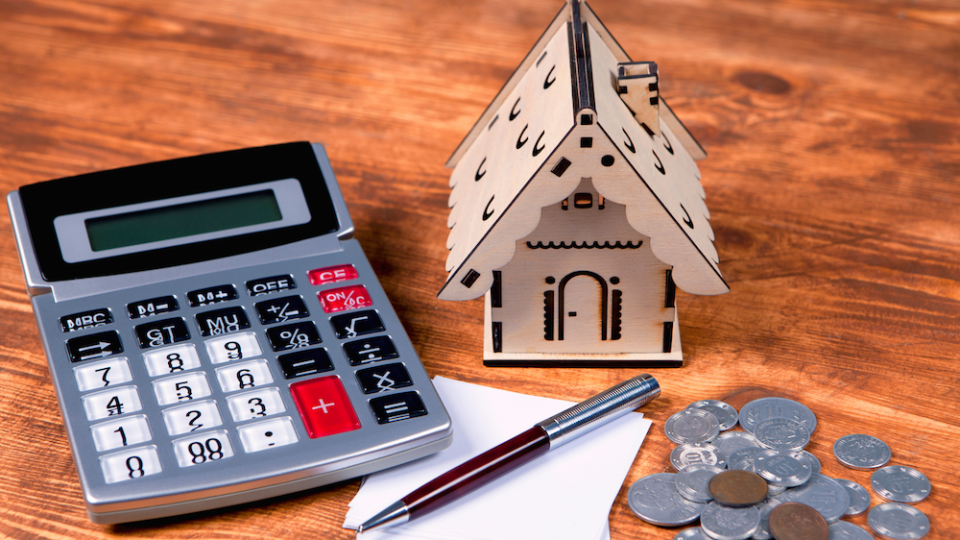
What Are Mortgage Points: A Guide To Buying Points And Saving Money

Contrary to popular belief, buying a home isn't just a major financial decision – it's a series of interconnected decisions that may not mean much right now, but will create ripples in your finances later on.
In this quick guide, we'll answer one of the most commonly asked questions by first-time homeowners: What are mortgage points and how can they affect my mortgage in the future?
Read on to discover what is a mortgage point and why lenders offer them in the first place.
What Are Points On A Mortgage?
A mortgage point is a prepayment made by a homeowner to a lender so that the former can reduce the cost of their interest rate and, in turn, their monthly payments. Typically, one point is equal to 1 percent of the total mortgage amount, allowing a discount of up to 0.25 percent on interest. As a homeowner, you'll be asked to pay for your points once you seal the deal on your mortgage, together with other closing costs like brokers’ fees and insurance.
Origination Points vs Discount Points
Before we delve into the nitty-gritty of mortgage points, we need to make the distinction between origination points and discount points.
Origination points may also be called "origination fees". These are fees paid to the lender as direct compensation for the administrative costs involved in processing your mortgage. Usually, origination fees cost about 1 percent of the loan amount, but they can also go for much higher. Some lenders will leave out origination points from the total closing costs, but they will likely offer slightly higher interest to compensate.
Now, if you're looking for points to lower interest, that's where discount points come in. Essentially, when you pay for discount points, you're paying prepaid interest, so you're shouldering a percentage of the interest upfront to lower interest rate and monthly payments for a set amount of time. That's why they call them "discount" points – you make a down payment for a discounted rate.
For the sake of clarity, we'd like to remind our readers that when we talk about mortgage points from here on out, we're referring to discount points.

How Do Mortgage Points Work?
Like we mentioned, as you close your deal on your mortgage and make your down payment, you may be given the option to purchase discount points. You will likely be able to buy between one and four points, depending on your state's limitations on closing costs.
So how do discount points minimize interest rate and monthly payment? Here's an example:
Say you're paying for a 30-year mortgage costing $300,000, with an interest rate of 4.5 percent. That means your monthly payment should amount to $1,520.06. But if you purchase one point (costing you an additional $3,000 on your down payment), your interest rate is reduced to 4.25 percent, and your monthly payment is reduced to just $1,475.82. And if you purchase two points ($6,000 upfront), your interest rate goes down to 4 percent, and your monthly payment should only cost you $1,432.25.
Evaluating The Break-Even Point
Now, you might be thinking, "Is paying $3,000 to $6,000 upfront worth the small reductions on my monthly fees?" The answer depends on two factors: the length of time you expect to stay at your house, and whether or not you're financially capable of handling the upfront fees.
See, there is such a thing as a "break-even point" – the point in time in which you've officially recuperated the initial cost of prepaying interest. The break-even point is different for each loan and depends on the length of the loan term, the loan amount, the interest rate, and the number of points purchased. To calculate your break-even point, divide the total cost of your discount points by the amount of money you will save from your monthly payment. The answer will tell you how many months it will take to break even.
So if you purchase two points on that $30-year mortgage with a 4.5 percent interest rate, you pay $6,000 upfront and save $87.81. Divide $6,000 by $87.81 and you get a little over 5 and a half years to break even. If you're looking to stay at your home for much longer than five years, then purchasing two points is worth it.
Typically, the more points you purchase, the faster you'll reach your break-even point. However, it comes at a (literal) price in the form of hefty upfront fees.
Fixed-rate Loans vs Adjustable-rate Mortgages
According to Forbes, discount points are not typically dished out for adjustable-rate mortgages or ARMs, though they do exist. If you do purchase points for an ARM, "[lenders] only lower your rate for your intro period – several years or longer – until the rate adjusts".

Mortgage Points: Pros & Cons
You may be asking, what is mortgage points' main benefit? And why should I even pay for mortgage points when they just add to the closing cost? To help you weigh your decision, let's take a side-by-side comparison of the pros and cons.
| Pros | Cons |
| You pay less for monthly repayments and interest: Mortgage down payments can take a sizable chunk out of your savings. Getting to pay a smaller fee monthly makes it easier to recover and make payments. You save more money in the long run: As long as you stay in your home well past the break-even point, you can stand to save a decent amount of money. Mortgage points are tax-deductible: In some cases, you can claim a tax deduction for mortgage points. However, you have to meet several requirements set by the IRS to do so. | Increases your upfront costs: Buying a house is already costly from the get-go. Between the mortgage down payment and the brokers’ fees, you’ll be shelling out a hefty price just to get started. Buying points just adds to your long list of upfront costs. It may take a while for you to feel the benefits: Depending on how many points you purchase it may take years, decades even, to break even. If you’re not planning on staying very long, purchasing points may not be worth it. You can’t refinance: If you refinance before the break-even period, you won’t reap the benefits of paying those upfront fees. Essentially, once you refinance, you forfeit your chances of generating long-term savings. |

Are Mortgage Points Worth The Trouble?
To help you determine whether you should purchase a point or two, we've come up with a few questions that you can ask yourself before making the jump:
How much are the closing costs?
A home loan's closing cost can fare anywhere between one and five percent of the home loan amount. This cost can include the appraisal fee, application fee, and processing fees, as well as the brokers’ fees and insurance. Other fees that may be included in the closing cost are attorney's fees, property taxes, and title insurance.
A lot of first-time homeowners don't take much of these fees into account when saving up for a down payment for their home loan. Don't make the mistake of thinking you have enough from your loan fund to cover a discount point or two, especially if you haven't computed for the aforementioned costs.
And if you're already worried about recovering from the upfront fees alone, it's probably a good idea to opt out of purchasing discount points, just because you don't want to be in the red for too long.
How much will you save on interest and monthly payments?
Now, if you are capable of paying for one or two points, it doesn't mean that you should. Calculate how much you'd be able to save each month, then calculate for your break-even point. If you'll be coughing up a huge amount of money just to make a tiny dent on the monthly payments of your loan, it might not be worth it in the long run.
How long will you be staying in your home?
To make the most out of your mortgage points, you need to be in it for the long haul. You'll only feel the benefits of paying for mortgage points once you get past the break-even point. If you're planning on moving out or refinancing before then, your points will just go to waste.
So, if you're looking at purchasing points for your home loan, you need to have some sort of vision for where you might be three, five, even ten years from now. Have a conversation with your partner or your family, and make sure that everyone is committed to staying in the home for the next few years if you want to reap a decent amount of savings.
What are interest rates like?
If the average mortgage interest rate is down – or if your lender is offering you a low interest on your mortgage – you may not need to purchase points. Low interest means lower monthly repayments, and if you're lucky enough to find a lender who can give you a good deal, grab that deal fast.

Conclusion
Mortgage points can be extremely helpful in minimizing monthly repayments and generating savings in the future. But, if you don't evaluate your overall financial situation, assess your future goals, and take a look at the current home loan landscape, you might end up losing more money than you had hoped to save. We at Wesley LLC can help make this and other financial decisions much easier.
Need guidance on other financial matters? Keep exploring this site to find answers to some of the most frequently asked questions about home loan financing and insurance, from "what are mortgages" to "home loan requirements" and more.